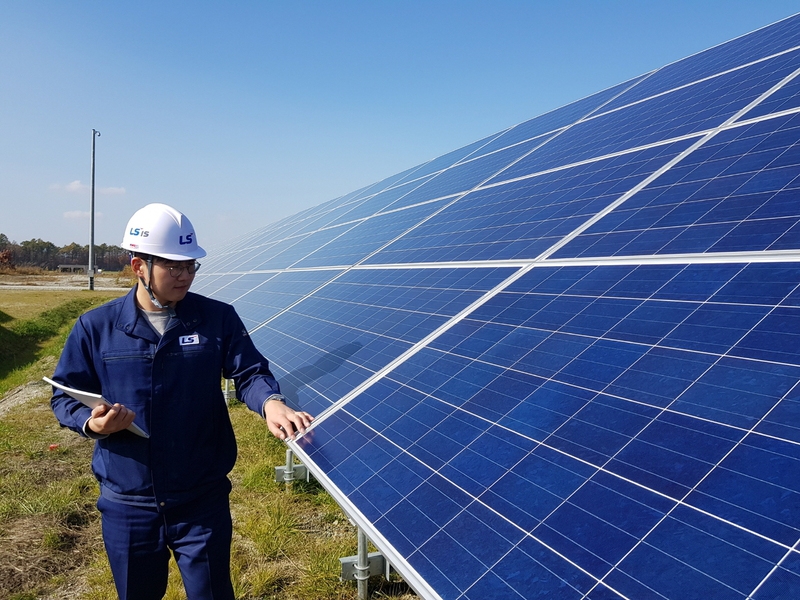 |
|
Solar energy panels
|
Country’s biggest emitters of greenhouse gases face few energy regulations and penalties
0.01 percent – that’s how much of the power consumed by South Korea’s corporate energy hogs that comes from new and renewable energy. Each year, the Korea Energy Management Corporation (KEMCO), which is affiliated with the Ministry of Trade, Industry and Energy keeps statistics on the energy used and saved by energy-guzzling companies, or in other words companies that consume more than 2,000 tonnes of oil equivalent annually. A tonne of oil equivalent, or toe for short, is defined as the energy contained by 1 tonne (metric ton) of crude oil, which is equivalent to the energy used over the course of a year and two months by a household that averages 310kWh of energy usage a month. The 2017 figures show that the 2,950 companies that submitted their usage figures used 97,573 toe, which represents 42 percent of domestic energy consumption. Only 9,653 toe of this derived from new and renewable energy produced directly. This can be blamed on the fact that there are basically no related tax penalties or regulations, despite the fact that companies’ energy consumption is directly proportional to the greenhouse gas emissions for which they are responsible. The only domestic regulation on energy-guzzling companies is the cap-and-trade system for greenhouse gas emissions. And even this is easy for companies to sidestep, since they’re allowed to buy carbon credits overseas that are worth up to one third of their total emissions reduction goal. On July 28, the Ministry of Environment published a revised version of the basic roadmap for reducing national greenhouse gas emissions by 2030, which would reduce the overseas reduction amount from the current 96 million tonnes to 16 million tonnes while increasing the domestic reduction amount, but it’s unclear whether that revision can survive industrial opposition. Since last year, KEMCO has been working with more than 20 corporations – including Hyundai Motor Company and LG Electronics – to select companies that have made their energy usage more efficient to receive certification as “energy champions.” But since this campaign is based on voluntary participation, it doesn’t include some of the country’s most notorious energy hogs, including Hyundai Steel and Samsung Electronics. That said, Samsung Electronics has released its own plan to increase its usage of solar energy and other forms of renewable energy to 3.1GW by 2020. Some are calling for the adjustment and expansion of the renewable portfolio standard (RPS) – which makes it mandatory for a certain amount of energy production to come from renewable sources – to make energy-guzzling companies accountable for reducing greenhouse gas emissions. The current RPS only applies to a total of 21 companies: the Korea Electric Power Corporation (KEPC), its six power-generating subsidiaries and 14 large private power suppliers. Regulations to have companies acquire 5% of energy from renewable sources Under the regulations, these companies are required to either produce five percent of their total power through renewable energy facilities or to make up the shortfall by buying renewable energy certificates (REC) from producers of renewable energy. The mandatory supply ratio goes up one percentage point each year and is set to reach 10 percent by 2023. “Since the cost that RPS creates for energy producers is reflected in the wholesale price of energy, ordinary consumers are effectively helping to expand renewable energy, too. In the same way, we should make it mandatory for the companies that emit the most carbon to use and invest in renewable energy,” said Song Yu-na, chief of policy and research for the Korean Labor and Social Network on Energy. Another suggestion is to introduce a system under which energy users can purchase electricity not via the intermediary of KEPCO but directly from renewable energy producers. “If we create consumer choice through a direct purchasing system, we could create a basis for companies to expand their renewable energy usage,” said Yang-Lee Won-yeong, secretary general of the Energy Transition Forum. By Choi Ha-yan, staff reporter Please direct comments or questions to [english@hani.co.kr] Caption: Solar energy panels Power consumption of 2.950 South Korean energy hogs





